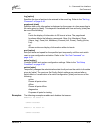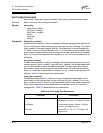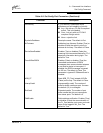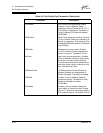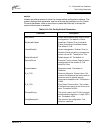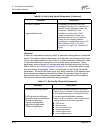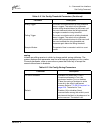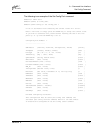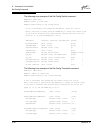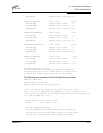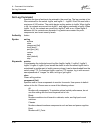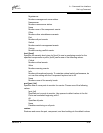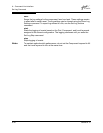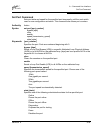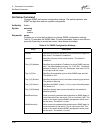
A – Command Line Interface
Set Config Command
59048-02 A A-39
Q
The following is an example of the Set Config Port command:
SANbox2 #> admin start
SANbox2 (admin) #> config edit
SANbox2 (admin-config) #> set config port 1
A list of attributes with formatting and current values will follow.
Enter a new value or simply press the ENTER key to accept the current value.
If you wish to terminate this process before reaching the end of the list
press 'q' or 'Q' and the ENTER key to do so.
Configuring Port Number: 1
------------------------
AdminState (1=Online, 2=Offline, 3=Diagnostics, 4=Down) [Online]
LinkSpeed (1=1Gb/s, 2=2Gb/s, 3=Auto) [Auto ]
PortType (TL / GL / G / F / FL / Donor) [GL ]
ISLSecurity (Any / Ours / None) [Any ]
SymPortName (string, max=32 chars) [Port2 ]
ALFairness (True / False) [False ]
DeviceScanEnable (True / False) [True ]
ForceOfflineRSCN (True / False) [False ]
ARB_FF (True / False) [False ]
InteropCredit (decimal value, 0-255) [0 ]
ExtCredit (dec value, increments of 11, non-loop only) [0 ]
FANEnable (True / False) [True ]
LCFEnable (True / False) [False ]
MFSEnable (True / False) [False ]
MSEnable (True / False) [True ]
NoClose (True / False) [False ]
IOStreamGuard (Enable / Disable) [Disable]
VIEnable (True / False) [False ]
CheckAlps (True / False) [False ]
Finished configuring attributes.
This configuration must be saved (see config save command) and
activated (see config activate command) before it can take effect.
To discard this configuration use the config cancel command.



